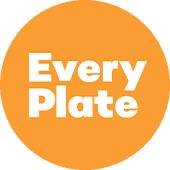The majority of us have dieted at least once in our lives.
Whether a strict fad diet or a more long-term “lifestyle change,” diets can have both benefits and drawbacks. For many people, dieting isn’t sustainable or healthy, particularly if you experience restrictive health issues, have an eating disorder, or struggle with self-image.
Having a strong support system is always beneficial when working through dietary changes. Knew Health Members use our free access to health coaches that can help you work through the challenges.
Given that diets don’t work for everyone – many of us put the weight back on, anyway – more and more people are looking to non-diet alternatives to cultivate a healthy relationship with food.
Intuitive eating is kind of the opposite of a diet. Instead of promoting restriction, intuitive eating encourages us to listen to – and satiate – our hunger cues. This is a stark contrast from diets that tell us to beat our cravings or put mind over matter when it comes to hunger.
Intuitive eating can enable you to curb overeating, improve your relationship with food, and find food more enjoyable.
What is intuitive eating?
With intuitive eating, you simply eat when you’re hungry or stop when you’re full.
Intuitive eating essentially asks us to listen to those hunger cues. When our bodies tell us that we need to start or stop eating, we honor them by listening to it.
Sounds easy, right? Not exactly. The truth is that many of us struggle with one or both of the above. Many people are prone to issues like binge eating and emotional eating. Similarly, many of us ignore our hunger until we feel dizzy or nauseous.
Why do we struggle with listening to hunger cues? Some reasons could include:
- Eating disorders
- Chronic dieting
- Food insecurity (due to poverty, for example)
- Difficulties with self-esteem
- Underlying health issues
Many of us are taught to ignore our hunger cues from a young age. How often do we tell children to eat everything on their plate before leaving the dinner table?
An important part of intuitive eating is not to focus on doing it “right” – in fact, nearly none of us can do it perfectly at first. Instead, be kind to yourself. Intuitive eating is a method and a tool you can use, not an assignment you have to complete perfectly.
What are some intuitive eating basics?
Depending on who you ask, there are some principles of intuitive eating to keep in mind. These aren’t rules, exactly, but rather ideas and guidelines that have shaped the intuitive eating movement.
The term was first made popular by the 1995 book Intuitive Eating, written by Evelyn Tribole and Elyse Resch. Although the discourse around intuitive eating has broadened since then, the central principles remain more or less the same.
These include the following values:
- It is not a diet. Tribole and Resch’s book is explicitly anti-diet.
- It is not about weight loss. Although some people lose weight while practicing intuitive eating, that’s not the point of it.
- Don’t focus on labeling food as “good” or “bad”. We often label foods as good or bad – and we label ourselves when we eat those foods. Intuitive eating tells us to let go of this idea.
- Honor your hunger. Listen to your hunger cues – and equally, you should listen to your body when it says it’s full.
- Enjoy your food. Savor your food, and savor the feeling of being satisfied by food.
- Listen to your emotions. We often engage in emotional eating to numb ourselves. Rather engage with your emotions and process them.
- Be kind to your body. Work on your relationship with your body while working on your relationship with food.
Once again, these aren’t rules, but tools. Perfection is not a goal. The point is to work towards these principles, not to beat ourselves up when we get them wrong.
What are the benefits of intuitive eating?
There are many exciting research-based benefits of intuitive eating.
One 2014 study looked at the effects of intuitive eating on participants. It found that intuitive eating practices led to:
- Increased self-esteem
- Better body image
- Less depression and anxiety
- Improved metabolic fitness
- Increased satisfaction with life
More importantly, it seemed that intuitive eating was more sustainable than a diet – in other words, it’s easier to stick to.
Another 2013 review found that intuitive eating didn’t seem to lead to weight loss, but improved physical health indicators such as blood pressure and cholesterol levels. It also noted that it seemed to improve psychological health.
And lastly, a review on the effects of intuitive eating on women found that it was associated with positive body image and positive emotional functioning in women.
How to start intuitive eating
If you’d like to, it could be worthwhile to find an intuitive eating coach or workshop in your area – yup, those exist!
But the great thing about intuitive eating is that it can be done at home without any equipment other than food itself.
If you want to try intuitive eating, it’s a good idea to spend some time observing your eating habits. When do you eat? When do you tend to overeat or undereat? Which foods make you feel good – not in a moral sense, but in a literal sense? Which foods make your body feel bad?
Observing our habits can enable us to ask curious, but non-judgmental questions about our eating patterns.
Before eating
Before you eat, ask yourself if you’re experiencing physical hunger or emotional hunger. If emotional hunger is leading to your eating, sit with that feeling and unpack it. Why are you feeling emotional? Can you label those emotions? There’s nothing wrong with eating itself, but is there perhaps a more constructive way to address that feeling?
While eating
When you eat, practice a bit of mindfulness. Mindful eating and intuitive eating aren’t the same thing, but they can complement one another. For two or three bites, focus on the sight, texture, taste, and smell of your food. Savor it!
Eat until you feel satisfied but not stuffed. Remember, you don’t need to eat all the food on your plate. If you’re enjoying the food but starting to feel stuffed, pack it away for later.
After eating
You might find it beneficial to practice mindfulness after you’ve finished eating, too. Ask yourself:
- How did that feel?
- What did I enjoy about that meal?
- Does my body feel good right now?
What if I get intuitive eating wrong?
There are many things that can get in the way of intuitive eating. Not everybody has access to adequate food, much less food that they enjoy eating. Emotional and psychological barriers can also be difficult to overcome.
Interestingly, a 2019 study on middle-aged women pointed out that many social and environmental challenges can make intuitive eating difficult. For example, many simply didn’t have the time to cook or eat when they wanted to. Plus, when families eat together, one or more people might not actually be hungry at mealtime. These and other common-sense issues can arise when you try intuitive eating.
Once again, remember that you don’t have to do intuitive eating perfectly. You might stuff yourself without realizing it or put eating off to finish a work project – it happens. Intuitive eating is just a gentle tool to help you bring your awareness back to your body. Practicing it some of the time is a better goal than doing it perfectly all of the time.
Taking the next step
Intuitive eating isn’t a diet, but it can have both mental and physical health benefits. If you’re interested in intuitive eating, you can practice it on your own – pretty much anyone can do it.
But you might also benefit from checking out some intuitive eating resources. There are plenty of books, workbooks, podcasts, and YouTube videos on the practice if you’d like to learn more. You could start by checking out Intuitive Eating: A Revolutionary Program That Works by Evelyn Tribole and Elyse Resch.
Lastly, if you have an eating disorder, it’s a good idea to speak to your doctor, health coaches, and/or therapist before trying a new eating practice. Although intuitive eating isn’t about restriction or perfection, it can be a trigger for some people. It’s best to err on the side of caution here.
With more and more people becoming disillusioned with diets, it’s no wonder why people are turning to this anti-diet trend. The research-backed benefits of intuitive eating make it appealing to people of all walks of life, especially those that struggle with guilt around eating. At its core, it asks you to honor your body – who could disagree with that?
RESOURCES
10 Principles of Intuitive Eating. Undated. https://www.intuitiveeating.org/10-principles-of-intuitive-eating/
Barraclough, E. et al. 2019. Learning to eat intuitively: A qualitative exploration of the experience of mid-age women. https://www.ncbi.nlm.nih.gov/pmc/articles/PMC6360478/
Bruce, L. et al. 2016. A systematic review of the psychosocial correlates of intuitive eating among adult women. https://www.sciencedirect.com/science/article/abs/pii/S0195666315300635
Maintaining Weight Loss. Undated. https://www.hopkinsmedicine.org/health/wellness-and-prevention/maintaining-weight-loss
Schaefer, J. T. 2014. A Review of Interventions that Promote Eating by Internal Cues. https://www.sciencedirect.com/science/article/abs/pii/S2212267213018960
Tribole, E. and Resch, E. 1995. Intuitive Eating: A Revolutionary Program That Works.
Van Dyk, N. et al. 2013. Relationships between intuitive eating and health indicators: literature review. https://pubmed.ncbi.nlm.nih.gov/23962472/










































